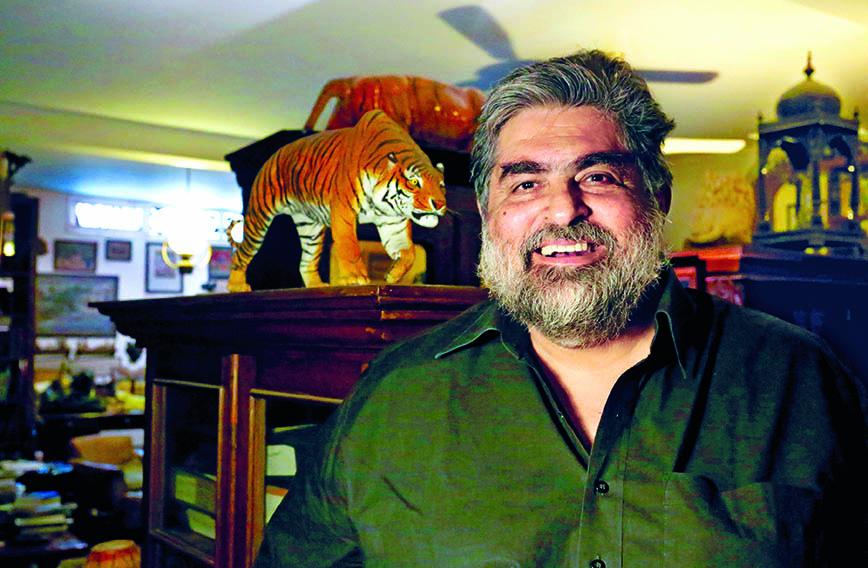
India’s tiger apostle: A tribute to Valmik Thapar
Ravi Chellam
In Valmik’s passing, wildlife conservation in India has lost a towering personality, both literally and figuratively. He was visibly passionate and very committed to conserving wilderness areas. Valmik’s was a powerful, fearless and persistent voice which for over 40 years advocated wildlife conservation, especially tigers, in India. He was outspoken and had an extremely charismatic presence. He had very strong views on what needed to be done and how it should be implemented and was not shy of expressing it.
A prolific author, a lucid presenter and narrator of films and documentaries, he built a global reputation as one of the foremost spokespersons for India’s wilderness. His writings were characterized by vivid and evocative descriptions and lyrical narration which often resulted in the described scenes coming alive in the reader’s mind. He was a good photographer and captured wonderful images, many of which have been published. I have met many people both in India and abroad who were deeply touched and influenced by Valmik’s books and films, resulting in their lifelong fascination and love for Indian wildlife.
He served on dozens of government committees and task forces including the National Board for Wildlife, the Central Empowered Committee constituted by the Supreme Court of India and the Tiger Task Force set up in 2005 in the wake of the local extinction of tigers in Sariska Tiger Reserve which was primarily caused by poaching.
One of his initiatives which made an early impression on me was the newsletter, TigerLink, which was full of wildlife news from all across India and neighbouring tiger range countries. It contained a wide range of resources including opinion pieces, book reviews, news from the field and abstracts of reports. This was the pre-internet and pre-social media era and TigerLink was freely and widely distributed to forest officers, staff in protected areas, researchers, colleges, journalists and anyone interested in conservation. It became an important source of information and a platform for people to connect and network.
Valmik also initiated the Zeiss Wildlife Conservation Awards for forest officers, conservationists and journalists. These awards were aimed to recognize and celebrate the work of unsung heroes who in some sense aligned with his model and approach to wildlife conservation.
While paying my tributes and respects to Valmik, I would like to mention that we agreed on many things, including our criticism of the introduction of African cheetahs in India, but also strongly disagreed on a few things such as his unequivocal support for the fortress model of conservation, his strong opposition to the Forest Rights Act and his views that the Asiatic lion and cheetah populations in India were a result of human action rather than natural dispersal.
Valmik quite famously submitted a dissent note to the report of the Tiger Task Force in July 2005. His primary disagreement with his colleagues on the Task Force was based on his strong belief that tigers should be conserved primarily by setting up protected areas inviolate from human presence, while the others believed in an approach which was inclusive of local communities and fostered the coexistence of tigers and people. Human-wildlife coexistence in its multifarious and diverse ways is the prevailing reality across wide swathes of India. In the era of global climate change it is unrealistic to believe that we can set up truly inviolate protected areas as climate change knows no boundaries.
In October 2005, a few weeks before the Forest Rights Act was passed by Parliament, Valmik wrote in The Indian Express, “The present draft of the Tribal Bill will not only destroy forests, but also wipe out tigers in all scheduled tribal areas of India.” He also wrote, “The proposed Bill will ensure that the commitment to social equality that was essential to the tribal way of life will be terminated.” And, “They (tribals) will get nothing and this bill will become the engine for the land and timber mafias to plunder our natural resources.” The most dire statement he made was, “In the resulting chaos the land and timber mafias will wipe out forests in scheduled tribal areas. The future of the tribal populations is not even worth talking about.”
Clearly such statements coming from someone who had social privilege and was also politically well-networked, was meant at the very least to initiate a rethink among those drafting the legislation, something which had already been ongoing for a few years.
In his book, Exotic Aliens: The lion and cheetah in India, which was published in 2013 along with Romila Thapar and Yusuf Ansari, Valmik strongly argues that lions and cheetahs were imported into India by humans relatively recently, and both species had not reached India through a process of natural dispersal across the land bridge from North Africa through West Asia and then into India. This was as radical as it gets and did result in some debate around the time it was published. As someone who has worked on the Asiatic lions for my PhD, I read the book with great interest. I found the ecological evidence and arguments made in the book weak and I wasn’t convinced. Most wildlife biologists and conservationists also disagreed with the main arguments made in this book.
I would like to think that these differences of opinion didn’t in any significant manner affect our mutual regard and respect for each other. He was extremely generous, a wonderful raconteur and fantastic company.
Every interaction with Valmik would leave a strong impression, one way or other. That was the power of his personality. Valmik’s passing has definitely diminished the strength of the Indian wildlife conservation sector. His boots would be very difficult to fill. ν
Ravi Chellam is a wildlife biologist and conservation scientist
Comments
Currently there are no Comments. Be first to write a comment!





